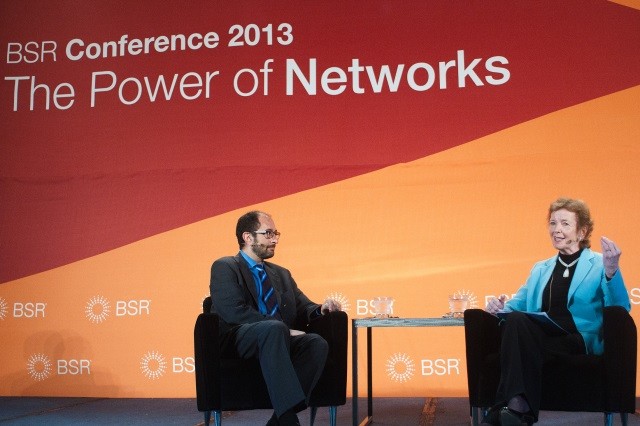How business can deliver climate justice was the topic of a plenary address delivered by Mary Robinson this week at the annual conference of Business for Social Responsibility.
How business can deliver climate justice was the topic of a plenary address delivered by Mary Robinson this week at the annual conference of Business for Social Responsibility.
Referring to ‘the fierce urgency of now’, a famous phrase from the ‘I have a Dream’ speech delivered by Dr Martin Luther King at the 1963 March on Washington, Mrs Robinson outlined the impetus on the world to act with equity and ambition in tackling climate change.
“Climate justice refers to the fact the people least responsible for climate change are all too often those who are most affected by its impacts,” Mrs Robinson said. “Basic human rights – such as the right to food, water, health, shelter, and even the right to life – are being undermined today because of environmental changes we are contributing to on a profound scale.
“For future generations, the consequences of continuing on the same carbon-emitting path are of unimaginable severity too all of society, including business, with enormous operational, financial and reputational risk. Keeping the temperature rise within two degrees Celsius (or 3.6 degrees Fahrenheit) is the only just approach the world can take to step away from the brink of a catastrophic future.
“Climate justice means accountability for harms done, but it also means taking steps today to prevent future harms. The progress that has been made on the broad business and human rights agenda must inform the steps needed to achieve climate justice for all.”
Mrs Robinson also welcomed the new initiative from BSR: ‘Business in a Climate-Constrained World’ announced by BSDR CEO Aron Cramer at the conference, and working alongside the organisation’s other theme of ‘Business in an Inclusive Economy’, which focusses on empowering all segments of society to meet their needs, shape their futures and achieve their potential.
“Climate justice provides the nexus to both. In many countries and cultures, marginalised groups such as women, indigenous communities and the poor are at the forefront of living with the reality of the injustices caused by climate change. They are critically aware of the importance of climate justice in contributing to the right to development and all other human rights being recognised and can play a vital role as agents of change within their communities.”
Related Links
Our Work: Equity and Climate Justice
Video: Mary Robinson plenary address and Q&A session during BSR 2013


